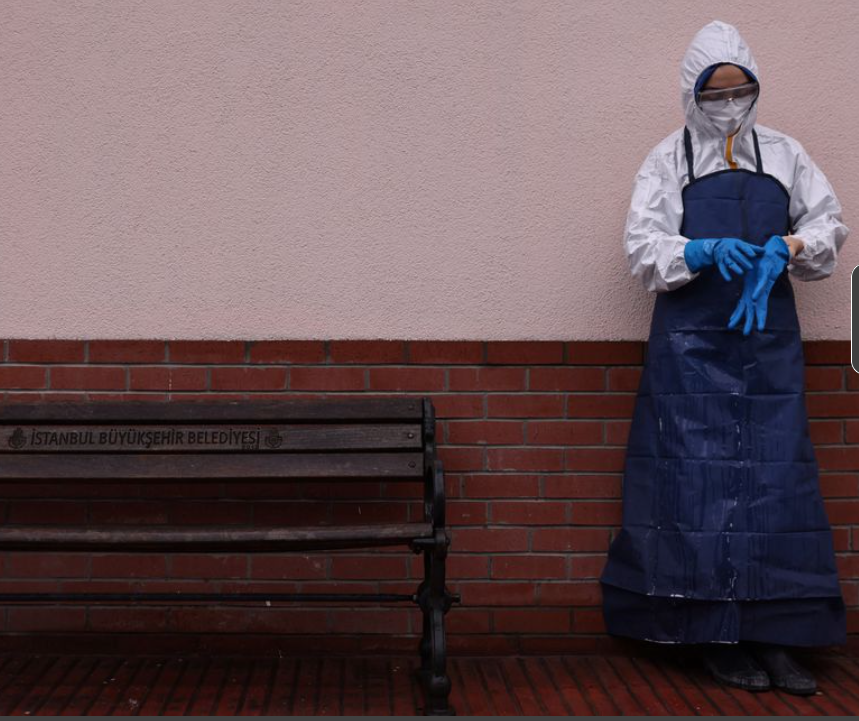Eda Elal has prepared corpses for burial in accordance with Islamic rituals nearly half her life, but says her job as a “ghassal” in Turkey has never been harder than when bodies and illness overwhelmed her during the COVID-19 pandemic.
Elal, 36, said a sense of spiritual duty helped her continue carrying out the common end-of-life ritual despite exhaustion and fear, especially when she herself fell ill with COVID-19 last year.
According to the ritual, ghassals pray while washing the body, before placing it in a white shroud ahead of burial. Corpses arrive from hospitals or homes to a washing cabin, called a “ghassilhane”, where men wash male bodies and women wash female bodies.
“I have been a ghassal for 16 years. I have never seen so many dead together. I have never washed so many corpses in one day. We were exhausted,” Elal said.
“Believe me, getting COVID was more difficult than washing someone who died of COVID. Because you are sick yourself, you are waging a battle of life and death,” she said, adding she received therapy for some time because she couldn’t go outside fearing she would be re-infected.
Istanbul, Turkey’s largest city of some 16 million, has 243 ghassals working in 16 washing cabins that are managed and funded by the municipal government, providing the service for free.
Elal said two ghassals normally wash five bodies each day, though it was as many as 40 during the worst days of the pandemic.
Turkey’s daily COVID-19 deaths peaked near 400 in May last year, and now hover just below 200 even as cases are at record highs. read more
Ceyhan Tunc, 45, another ghassal, said they were panicked when the pandemic began and debated how to continue their work while keeping safe, but continued once new protective measures were adopted.
“This is a matter of heart,” said Tunc, who has worked for five years.
Missed Opportunity: Turkey-Israel Relationship
The ghassals are paid by the municipal government but Elal and Tunc said the demanding work is more a responsibility than a source of income.
“We try to look at this not from a perspective of money and a job, but rather from a religious duty,” Elal said.
Elal says her father and husband did not at first support her decision, at age 17, to become a ghassal. But now family is her biggest moral support.
“I never had regrets about doing this work because preparing the corpse is the last service to a person. My faith and spirit are satisfied,” Elal said, adding that being with someone in “their final moment” made up for the difficulties.
Follow our English language YouTube videos @ REAL TURKEY:
https://www.youtube.com/channel/UCKpFJB4GFiNkhmpVZQ_d9Rg
And content at Twitter: @AtillaEng
